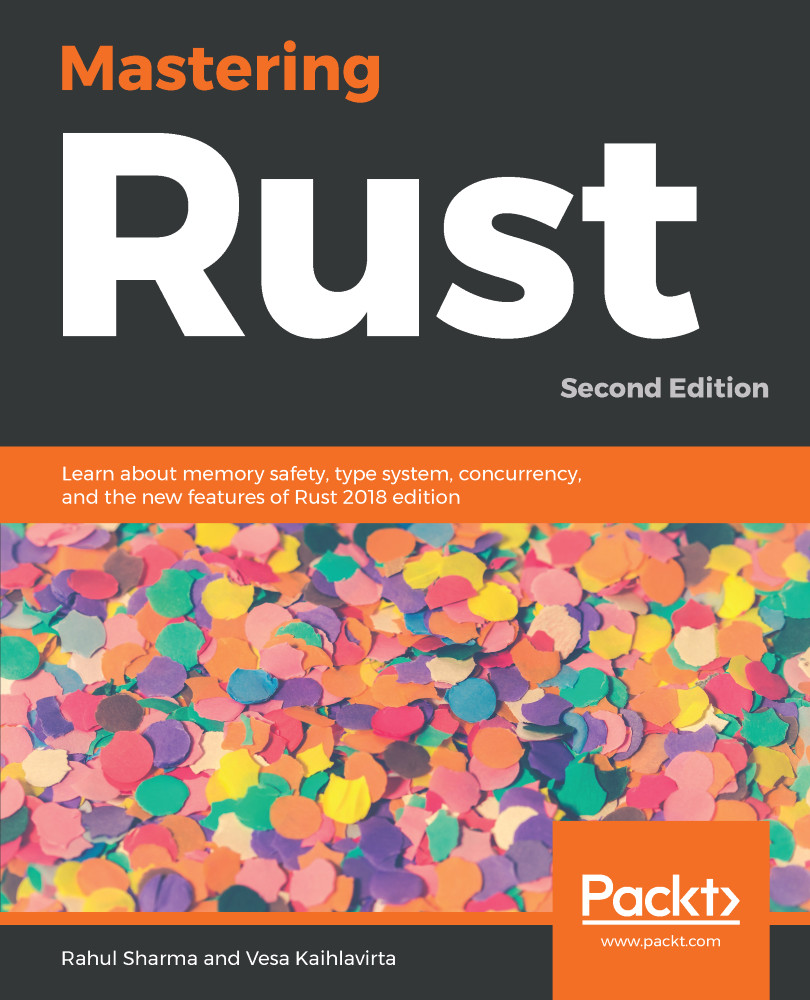Rust takes a low-level systems programming approach to memory management, promising C-like performance, sometimes even better. It does this without requiring a garbage collector through its use of ownership, lifetimes, and borrow semantics. We covered a whole lot of ground here in a subject that's probably the heaviest to grasp for a new Rustacean. That's what people familiar with Rust like to call themselves, and you are getting close to becoming one! Getting fluent in this shift of thinking of ownership at compile time takes a bit of time, but the investment in learning these concepts pays off in the form of reliable software with a small memory footprint.
Our next chapter will concern how fallible situations are handled in Rust. See you there!


